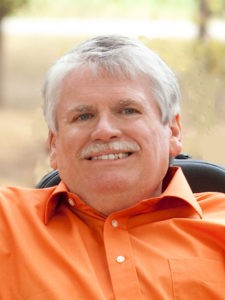The evangelical church in the United States is a mess. I’m not talking about reports of declining membership and lower baptism numbers. Those statistics merely provided warning signs that something was amiss, that things were going in the wrong direction. The church has been headed into trouble for a long time.
I’ll leave it to church historians to trace the start of the mess — I know it started a long time ago — but the proverbial straw that broke the camel’s back occurred in the past few years. That straw is named Donald Trump. He didn’t break the evangelical church. But he was too much for the church to bear.
If the church had been healthier, it would have treated Trump like a president instead of a King, or Savior, or Messiah or whatever term you choose. The church certainly did not regard him as a politician with strengths and weaknesses. I’m walking on solid ground when I say a healthy church would have been uncomfortable with a president who touted Trump’s public moral resume.
Trump definitely had an effect on the American church. During his four years in office, the number of white Americans who self-identify as evangelicals increased. You would think this would be a reason for church celebration, reversing the trend with increasing numbers in the flock. However, it might not be good news. It seems the increase did not reflect more people coming to Jesus. Surveys show evangelicalism grew because the church identified with the Republican Party.
Many will suggest they don’t care why people come, as long as they come. They will echo the Apostle Paul, who rejoiced when his adversaries preached Christ, even for the wrong reason. But evangelicals did not increase because more people attended church. A Pew Research study shows in 2008, 16% of evangelicals reported they did not attend church. That number increased during Trump’s term in office to 27%.
Similarly, the portion of evangelicals who claimed to be politically conservative rose from 33% in 2016 to 50% today. If you think those numbers are disturbing, consider this: The percentage of Catholics who identified as evangelical grew from 9% to 15%. How is that even possible? This pattern also is true with politically conservative Muslims, Hindus and Mormons identifying themselves as evangelical.
It seems the church is growing because Jesus is no longer required.
It seems the church is growing because Jesus is no longer required.
This happened because the American evangelical church created this environment; you might call it the perfect storm. The church became vulnerable to takeover by a power other than Jesus. This is because the church changed in crucial areas over the years.
Stewardship morphed into greed
I begin with stewardship because it’s an arena I know well. Preparing to board a flight from Nashville to Dallas many years ago, I ducked into the airport bookstore to get something to read. I came across a new book titled Financial Peace, written by some guy named Dave Ramsey. I never had heard of him, but I thought his book might have information I could use in my work teaching stewardship.
I did what I often do and jumped to the footnotes section to discover Ramsey’s sources. Within those notes, I found my name. It was the first time I had been quoted in someone else’s book, and I was excited. I even nudged the lady sitting next to me and showed her. “That’s me,” I said as I pointed to my name. She wasn’t as impressed.
As you know, Ramsey shot off like a rocket in the Christian world. His books, seminars and radio program became the rage for Christians who cared about money. He even sprinkled in enough Bible verses to legitimize his stuff so it could be taught in churches. In my last couple of years teaching stewardship in churches, I discovered many congregations scrapped traditional stewardship teaching for Financial Peace seminars.
Don’t misunderstand; I’m not criticizing Ramsey. I went down that road several years ago, and his followers are many and mean. The problem was not Ramsey but the church. Ramsey never pretended to teach stewardship. He taught money management and debt elimination, which turned out to be lucrative for churches.
The church always has needed money. Coupled with some subsequent changes mentioned in this article, the church found itself in need of a lot of money. When I started stewardship work, a church rarely needed a million dollars to construct a building. A couple of years ago, a church near spent $60 million to erect a massive auditorium. I had lunch with the stewardship pastor of that church and learned he had a larger staff and budget for one church than I had as the stewardship director for 3,000 churches. By the way, he used his budget and staff to cultivate large donors.
The evangelical church lost interest in using money to help the poor. Ask yourself, which churches are most opposed to welfare and affordable health insurance?
The evangelical church lost interest in using money to help the poor. Ask yourself, which churches are most opposed to welfare and affordable health insurance?
Mission giving became less and less of a priority. The way many churches do missions today is sponsor a package vacation tour with a side stop to help a struggling village.
When was the last time you heard of an evangelical church teaching stewardship of the earth? Instead, you’re more likely to hear, “Don’t bring that global warming stuff in here.”
Once the evangelical church’s emphasis became more about “me” than about “them,” its budget became more expensive but easier to raise because people like to give to themselves. I think that’s called greed.
Worship turned into performance
Put the congregation in an auditorium, turn out the lights, and as soon as the spotlight comes on, you can tell who is being worshipped. I’ve seen this countless times, and the light never shines on Jesus. Attention always tilts toward a performer.
The evangelical church values talent over heart. Churches no longer accept choirs with an occasional off-key alto or tenor. In fact, choirs open to anyone who wants to sing have disappeared. Instead, three or four handpicked talented musicians comprise the worship team. The congregation is free to sing along if they wish, but it’s not necessary. The talent in the spotlight carry out what passes for real worship.
Most evangelical churches, even small ones, highly choreograph worship to elicit a desired response. Performance is crucial to achieve that desired response.
In the Old Testament, worship normally occurred at an altar, the place of sacrifice. In the New Testament, worship usually was a spontaneous response to God’s presence or activity, nothing like a narcissistic, preplanned activity in front of a waiting crowd.
Turning the church service into a performance opened the door to removing Jesus from the central focus. Once the gathering no longer focused on Jesus, something else inevitably became the object of worship. During the Trump tenure, a political position often was the object of worship. Perhaps that helps explain why so many non-Christians claim to be evangelicals; they observed evangelicals and realized they hold the same beliefs.
Leadership turned into celebrity
I have no idea when Christian leaders became celebrities. Once again, we need historians to tell us. For most of my life, Billy Graham was the closest thing we knew to a Christian celebrity. Thousands attended his rallies, and we watched him once or twice a year on TV. Even with his notoriety, Graham’s only purpose was calling people to repent and turn to Jesus.
Something changed, and now preachers are celebrities. It’s not uncommon to see a huge photo of a preacher on a billboard advertising a church, like Channel Four posting a photo of the evening news anchor on its advertising. To be recognized as a worthwhile preacher, you need a best-selling book and numerous social media followers. Pastors who accomplish these milestones get invited on Fox News to present a “Christian” opinion on a political issue.
Some pastors are called “executive pastor,” a term that conjures visions of a company CEO. Leading a congregation no longer is required when a pastor answers to a board of directors or a group of hand-picked “elders.” Some mega-church pastors report to a board composed of people who are not even members or attenders of the church the pastor leads. That’s hard to believe, but look it up.
Celebrities don’t need leadership skills, because they don’t need to lead long-time church members to establish ministries or to move in a new direction. Church members are not involved in church decisions, so it doesn’t matter if the pastor possesses leadership skills.
Once laity surrendered leadership to celebrities, it became easier for the church to go off in directions that would contribute more renown to the pastor. On more than one occasion when I was a pastor, church members pulled the reins to keep me from going out of bounds. I learned to lead by relying on their accumulated wisdom.
Discipleship turned into partisanship
Evangelicals always have been big on rules. As a kid, we frequently heard the expression, “no mixed bathing.” It didn’t mean sharing time in the shower. Every youth camp had a rule preventing boys and girls from swimming simultaneously. Other rules included things like no smoking or drinking, divorce is a sin, and pre-marital sex certainly was a no-no.
Rule-keeping did not help people get closer to God. We understood spiritual growth is a process, a process known as discipleship.
However, rule-keeping did not help people get closer to God. We understood spiritual growth is a process, a process known as discipleship. The evangelical church’s favorite Scripture was Matthew 28:19-20: “Go, therefore, and make disciples of all the nations, baptizing them in the name of the Father and the Son and the Holy Spirit, teaching them to follow all that I commanded you; and behold, I am with you always, to the end of the age.”
Making disciples started with Sunday school classes, youth organizations, Bible studies, retreats and other special events. The church taught the key to avoiding sin is learning more about following Jesus. The church stressed memorizing Scripture, because the Bible says if we hide God’s word in our hearts, we will not sin.
Because I was in a wheelchair, I was not allowed to join the Boy Scouts. It was a different world back then. One of the few times I ever saw Daddy angry occurred the evening the scout master came to our house to break the news. My father channeled his anger into building an organization known as Royal Ambassadors in our church. You old-time Baptists will know what I’m talking about. Through that discipleship group, I memorized numerous Scriptures, many that remain with me today.
Those memorized Bible verses charted my faith journey. The church continued to educate and nurture me about what it means to follow Jesus, to be a disciple. I didn’t grow up hearing sermons about sin and evil in the world. I learned about forgiveness, love, ministry and witnessing. It was a Baptist church, after all.
At some point, however, evangelicals turned “discipleship” into Republican partisanship. To be a good Christian no longer meant following Jesus; it now consisted of what political positions you affirmed. In some churches, it has gone so far, they no longer ask, “What would Jesus do?” Now, the question is, “What would Trump do?”
Loving turned into judging
Love is the defining characteristic of Christianity. Jesus clearly insisted love is the standard by which everything in our lives is measured. The evangelical church understood this, even though it didn’t always practice love. We were taught to love our enemy as well as our neighbor. We even were taught to love everyone in the world. That was the motivation behind the enormous missions movement funded by evangelical churches.
Love is the defining characteristic of Christianity. Jesus clearly insisted love is the standard by which everything in our lives is measured.
Evangelical churches built hospitals and orphanages, staffed homeless shelters and food pantries, employed chaplains, and readily volunteered to recover and rebuild when a catastrophe occurred anywhere in the world. They did this because Jesus said when we do it to the least, we do it to Him. Love of Jesus motivated evangelicals.
What happened?
How many people do you know who have been turned off by the evangelical church because of constant judgment?
If you don’t speak out against all abortions, then you hate babies.
If you bake a cake for a gay wedding, you are an abomination.
If you’re a homosexual, you go straight to hell, no passing “Go.” Not only have you ruined your own life, but you’re leading our entire country down the sewer.
If you accept food stamps, government assistance for healthcare, or any kind of welfare, you’re a lazy bum who doesn’t know how to manage your life.
If you’re addicted to drugs, you belong in prison.
If you’re an immigrant, go back home where you belong and work out your problems.
And obviously, if you’re a Democrat, you can’t be a Christian.
When Donald Trump came floating down the escalator to announce his candidacy for president, he attacked Mexicans and Muslims, and the evangelical church had been groomed and prepared to hail him as their commander in chief.
Trump didn’t destroy the evangelical church; he was the final straw. He gave the church permission to go public with what they had become. He exposed the reality hidden for many years.
So, what happens now? If the trend continues, the church will become less and less about Jesus and more and more about Republican politics. If you think they are the same thing, you’ve neglected your Bible study.
Trump didn’t destroy the evangelical church; he was the final straw. He gave the church permission to go public with what they had become. He exposed the reality hidden for many years.
Ordinarily, I’m an optimistic guy. I enjoy life and look forward to the future and expect something good to happen every day. But I’m not optimistic about the evangelical church. I view the evangelical church in America like I watch the Texas Rangers every season. I stay faithful to the Rangers each year until they reach the point where it is impossible for them to win. That usually happens in early September. For me, the evangelical church is in late August, nearing the point where it’s too late to stop the trend.
The church needs another Reformation, and we can only pray there is a Martin Luther somewhere. In the meantime, I’ve become among those who no longer consider themselves evangelical and stopped attending church. That’s another story.
Terry Austin says from his first day of life he was taught to love the church. He has lived out that passion in various ways as a pastor, church consultant, author and critic. He currently is a full-time writer and book publisher and actively engaged with house churches.
Related articles:
Evangelicals are in trouble: Reclaiming ‘Oberlinism’ could bring some redemption / Opinion, Bill Leonard
Broken churches, broken nation: Will evangelicals ‘recalculate’ or rebel? / Opinion, Bill Leonard
Support for Trump could spell the end of the evangelical church. But when? / News, Jeff Brumley




